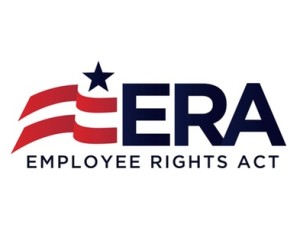 This week (August 10-16), a national coalition of groups (including the Center for Union Facts, which co-sponsors this website) are sponsoring National Employee Freedom Week to inform union members of their rights to opt out of union membership and certain (if not all) union dues. Working with grassroots state-level partners, the coalition and CUF are reminding union members of their rights under state laws and various Supreme Court decisions to withhold union membership and at least a portion of dues if they don’t support the union agenda. Polling by the coalition suggests up to 29 percent of self-reported union members would leave their unions if given the chance.
This week (August 10-16), a national coalition of groups (including the Center for Union Facts, which co-sponsors this website) are sponsoring National Employee Freedom Week to inform union members of their rights to opt out of union membership and certain (if not all) union dues. Working with grassroots state-level partners, the coalition and CUF are reminding union members of their rights under state laws and various Supreme Court decisions to withhold union membership and at least a portion of dues if they don’t support the union agenda. Polling by the coalition suggests up to 29 percent of self-reported union members would leave their unions if given the chance.
While much of the coalition effort focuses on the rights of public employee union members, dissenting private-sector workers also have rights to refrain from funding union agendas they don’t support. According to exit polls from the last election, while 90 percent of union political spending backed President Obama and other Democrats, 40 percent of union households voted for Republican Mitt Romney.
Depending on a (non-railway, non-airline) employee’s state of work, his or her rights vary:
- If an employee works in one of the 24 Right-to-Work states, he or she can quit the union at any time and refrain from paying any money to the union. However, automatic dues deductions must be withdrawn during a union-specified window, so employees should ensure they know when their union’s window is by consulting their union bylaws, which may be available on the local union website.
- If an employee works in one of the non-Right-to-Work states, the District of Columbia, a United States Territory, or certain federal enclaves (like military bases), an employee may quit the union at any time. However, the union may still charge mandatory “agency fees” — dues for non-members represented by the union. In order to receive a reduction in agency fees equal to an employee’s share of expenses not related to representation, an employee must write a letter to the union affirmatively objecting (using the phrase “I object”) to paying for unrelated (usually political) expenses. Resigning members typically have 30 days to file an objection (you can resign and object in the same letter), and some unions require employees to renew their objection letters annually. Consult your union bylaws for specifics.
While union members opposed to their bosses’ agendas await the passage of broadly supported labor reforms like the Employee Rights Act, there are still options for them to refrain from full support of union bosses who don’t represent their interests. It just takes more work to stay informed — union bosses alone seem to want it to stay that way.
The Right-to-Work states, in no particular order, are: Virginia, North Carolina, South Carolina, Georgia, Florida, Tennessee, Alabama, Mississippi, Indiana, Michigan, Iowa, Arkansas, Louisiana, Texas, Oklahoma, Kansas, Nebraska, North Dakota, South Dakota, Wyoming, Idaho, Utah, Nevada, and Arizona.



